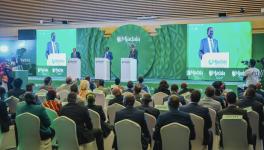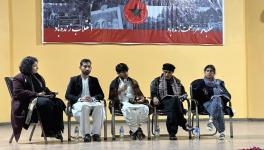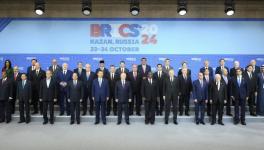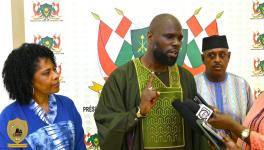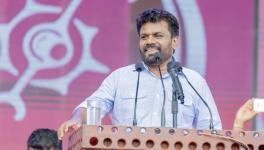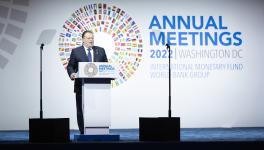2025 African Union Polls: A Contest of Prestige, Not Continental Vision
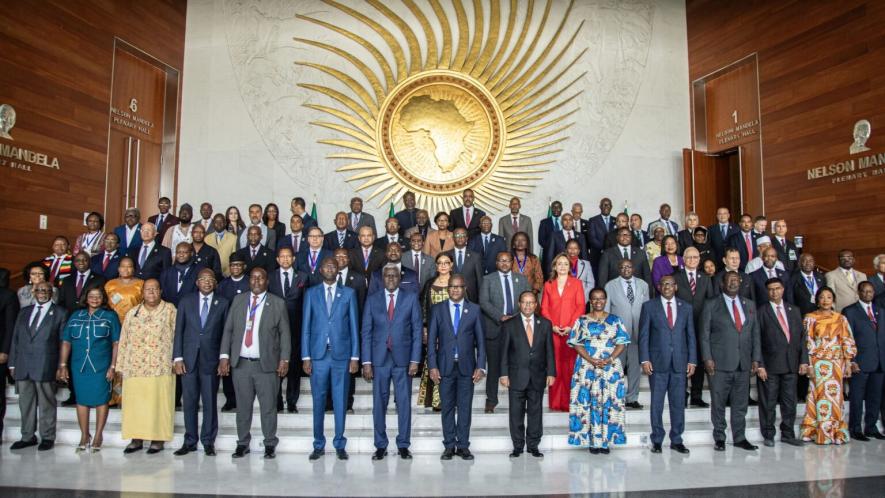
AU Executive Council meeting in February 2024. Photo: AU
With the February 2025 election for the African Union (AU) Commission Chairperson just four months away, momentum has been building among candidates vying to succeed outgoing Chairperson and former PM of Chad, Moussa Faki Mahamat, who is stepping down after two terms. The candidates for the upcoming race are from Djibouti, Kenya, Madagascar, and Mauritius. The stakes are high as Africa faces critical issues that require visionary leadership, but the campaign dynamics are also highlighting divisions that historically continue to plague the AU in the run up to every election.
The AU, established in 2002 to replace the Organization of African Unity (OAU), was founded with a mission of strengthening integration, self-determination, and cooperation across Africa. Today, its institutions like the AU Commission and the Pan-African Parliament are meant to promote policy across economic growth, political stability, and conflict resolution.
While not new, when it comes to these elections, the current campaigns appear to focus more on national pride and regional dominance. Winning the AU Commission Chairperson role has become an empty symbolic victory for the candidate’s country, often driven by the desire for regional influence rather than a robust plan to concretely address Africa’s pressing issues that are systematic alongside new emerging problems.
Kenya’s former Prime Minister, who leads the country’s opposition party, has emerged as a frontrunner after receiving endorsement from the East African Community’s (EAC) in Nairobi in an event spearheaded by President William Ruto. This backing places him as East Africa’s candidate of choice, poised to bring the region’s interests to the AU’s center stage. Kenya has invested in AU leadership bids before. In 2017, Kenya’s candidate Amina Mohamed was highly publicized and backed with significant resources, yet ultimately lost to the outgoing Moussa Faki. This setback was partly attributed to Kenya’s historically complex relationships with its neighbors and the Francophone bloc’s strategic unity, which has been seen as less cooperative with East Africa.
Meanwhile, Djibouti’s candidate, Mahmoud Ali Youssef, Minister of Foreign Affairs since 2005 is also gathering momentum, especially after the endorsement by Organization of Islamic Cooperation (OIC) and possibly Francophone countries. Colonial and linguistic affiliations remain deeply influential, with Francophone and Anglophone countries often voting along these lines. However, the Sahel region’s recent political shifts, where Burkina Faso, Niger, and Mali have left the Economic Community of West African States (ECOWAS), has cast uncertainty on how the Francophone bloc might align in this AU election.
Africa’s challenges demand an alternative vision.
Given that 60% of the population of the African continent is under 25 years and many countries like Congo, Angola, Kenya, Ghana, and South Africa are abundant raw materials, AU leadership should prioritize visionary policies that unleash the continent’s economic potential and tackle its pressing issues. Africa’s Agenda 2063, launched in 2015, aspires to create a self-determined, prosperous Africa. However, progress has been slow, and many feel that the agenda remains more symbolic than actionable. Although calls for continental unity, visa removal, and trade freedom feature prominently in the current race, historically these campaign promises can become just populist rhetoric, as practical implementation has repeatedly stalled and for various reasons.
Critics argue that the AU itself has also become detached from grassroots issues, focusing on corporate-style, exclusive meetings that lack input from everyday Africans on important issues like health, education, and security. The AU’s decision-making process has increasingly become an echo chamber for African elites, promoting a culture of political clout and regional rivalry rather than collective advancement of the continent. In fact, a core requirement is that candidates must have previously served as presidents, prime ministers, or foreign ministers.
This detachment can also be seen in the context of the recent popular anti-imperialist sentiments in the Sahel. The AU’s dependence on financial and political support from Western powers and institutions like the IMF and World Bank has led to criticisms of it as an extension of neo-colonial influence rather than a body fully committed to African sovereignty. This reliance often constrains the AU’s policies, especially when aligning with Western interests means sidelining the voices of African citizens pushing for a more autonomous and assertive continental agenda.
One activist from the social movements in Kenya told Peoples Dispatch,” The African Union’s dependence on foreign funding, particularly from the European Union and the United States, restricts its ability to adopt policies that truly reflect African interests. When you’re reliant on imperialist powers for support, pursuing independent, progressive policies becomes nearly impossible. As Thomas Sankara said, ‘Who feeds you controls you.’”
The activist stated that, “The AU’s endorsement of neoliberal economic policies reflects this compromise. Instead of promoting self-reliant, people-centered development, it pushes for foreign investment, privatization, and market liberalization, aligning itself with global capital rather than the welfare of African people.”
“Its historical reluctance to support anti-imperialist movements shows the AU’s alignment with, or at best, passive permission of imperialist interests. From Western military bases to corporate exploitation, the AU remains silent or compliant. Many African heads of state involved in the AU benefit directly from Western alliances, using these relationships to secure power domestically. As a result, the AU prioritizes stability for the elite rather than progressive change for the many.”
As the AU Commission Chairperson race continues, we are left wondering if the next leader will bring about a substantive shift toward Africa’s true strategic interests, challenge neo-colonial and imperialist interests, and transcend regional rivalries, or simply continue to perpetuate the AU’s symbolic role in global politics. February’s election should mark a shift and not another chapter of continued missed opportunities for Africa’s future.
Nicholas Mwangi is a member of the Ukombozi Library in Kenya.
Get the latest reports & analysis with people's perspective on Protests, movements & deep analytical videos, discussions of the current affairs in your Telegram app. Subscribe to NewsClick's Telegram channel & get Real-Time updates on stories, as they get published on our website.









